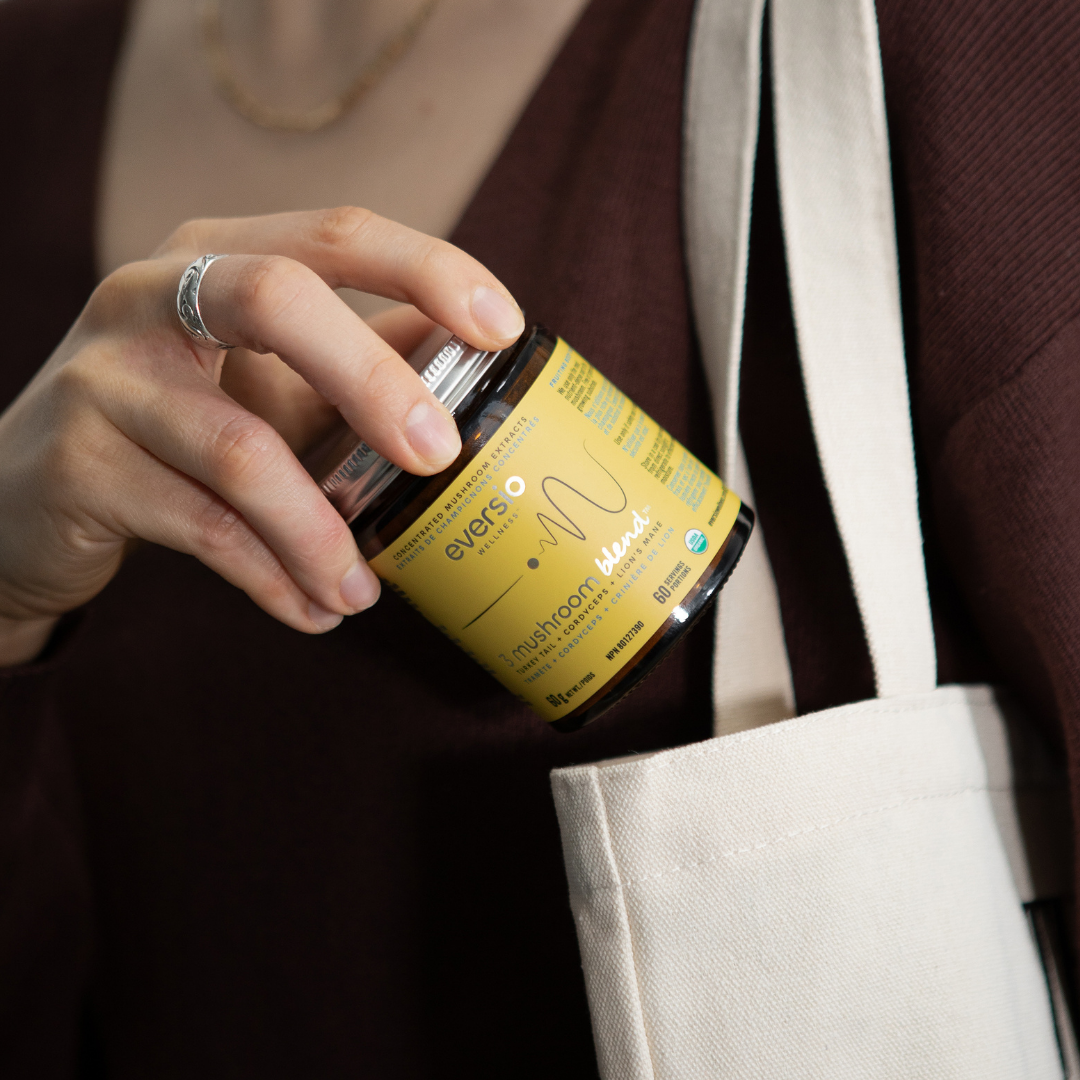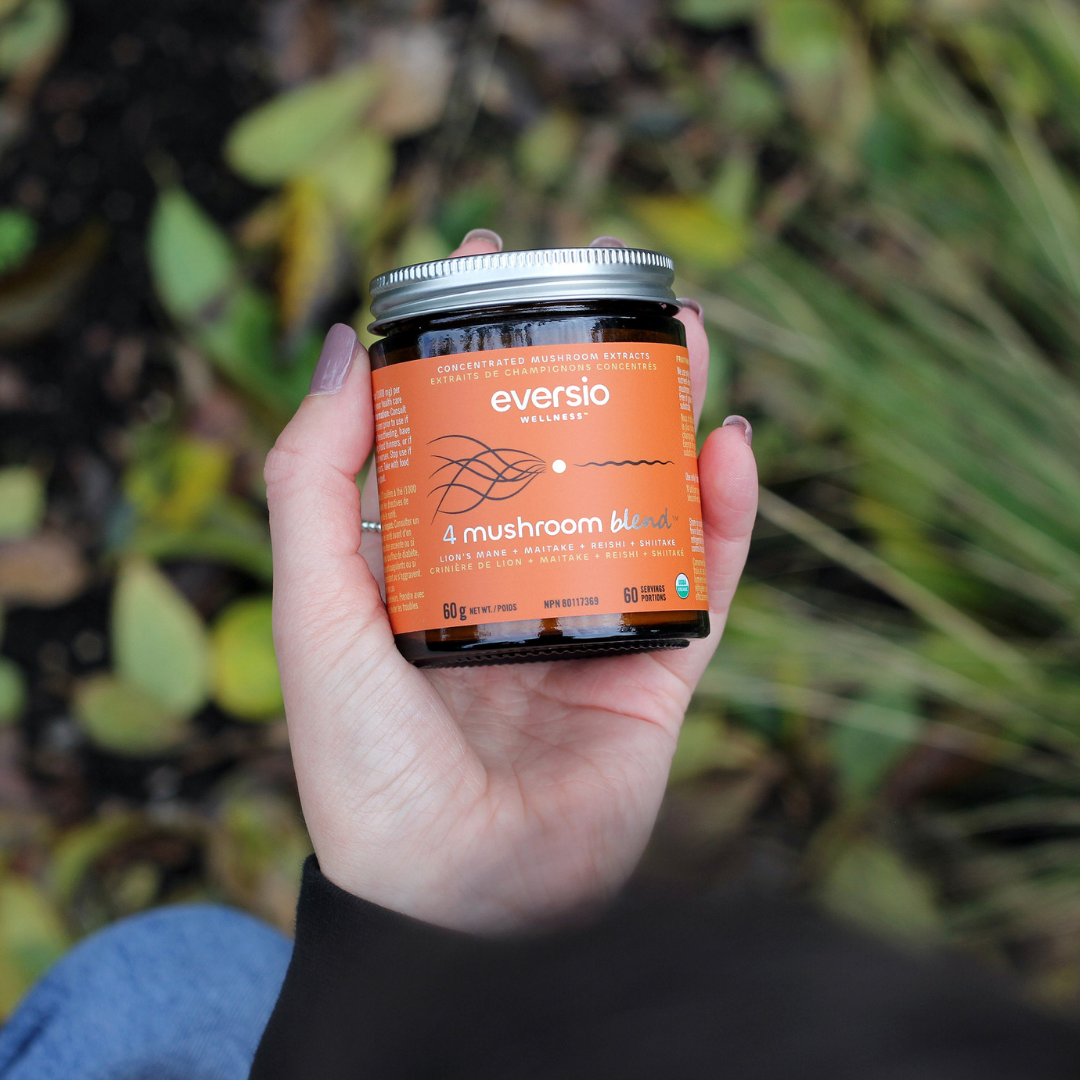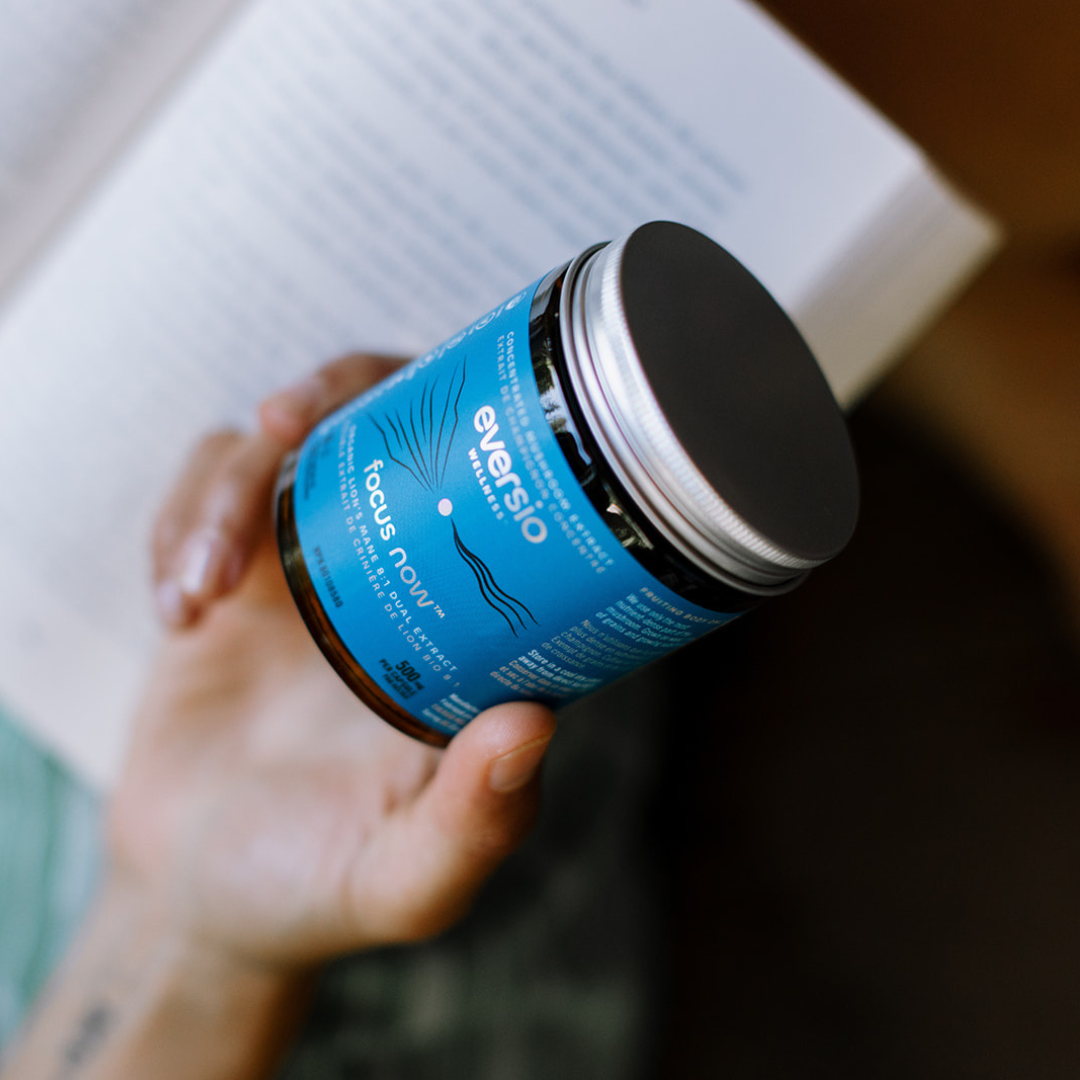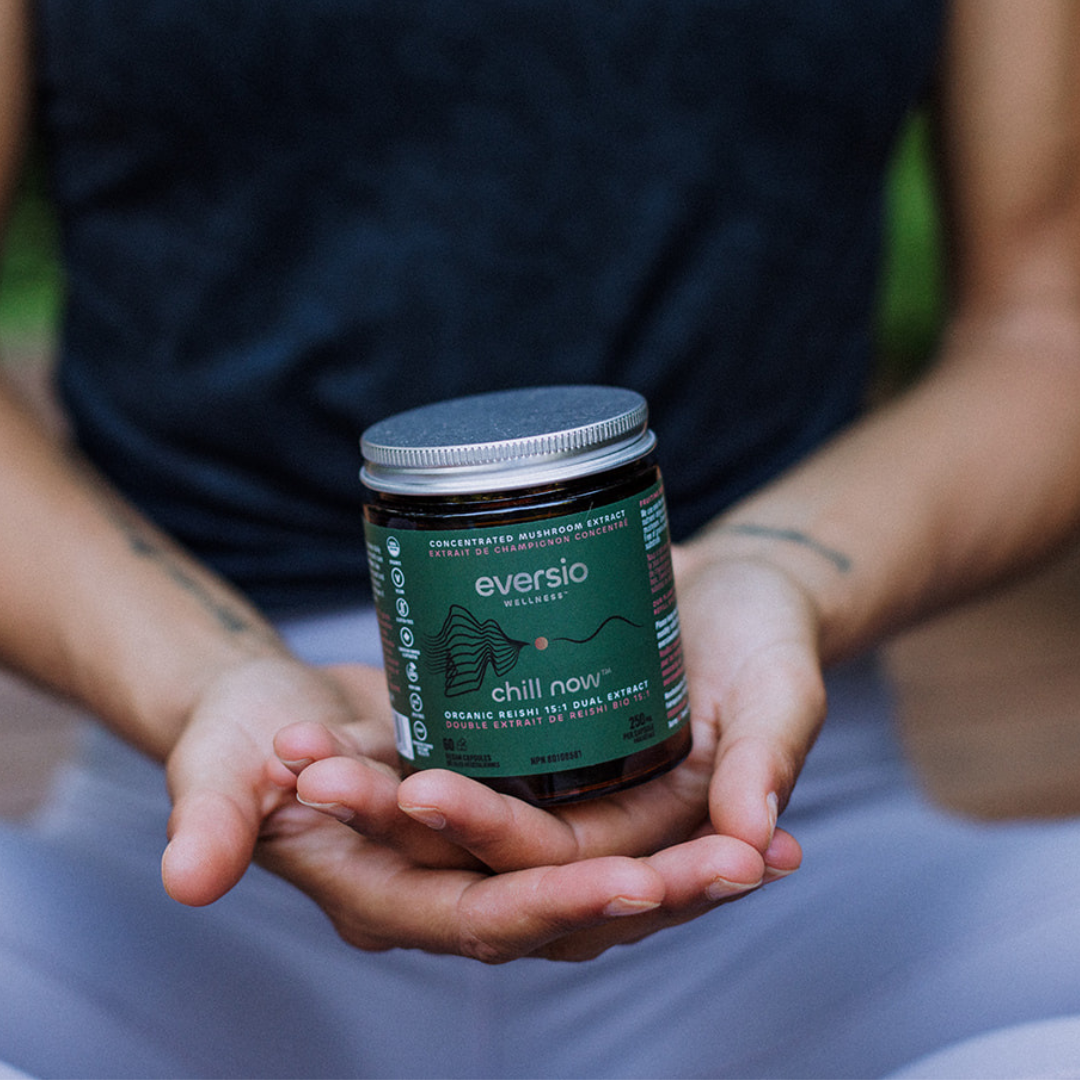Autoimmune thyroid conditions, such as Hashimoto's Thyroiditis (HT) and Graves' Disease (GD), are among the most common autoimmune diseases affecting millions worldwide. These conditions occur when the immune system mistakenly attacks the thyroid gland, leading to fatigue, weight gain or loss, and mood changes.
While conventional treatments such as thyroid hormone replacement therapy can help manage symptoms, they do not address the underlying autoimmune process. As a result, many people are turning to alternative remedies, like functional mushrooms, to help modulate the immune system and reduce inflammation. This article will explore how functional mushrooms can improve autoimmune thyroid conditions and discuss the scientific evidence supporting their use.
The Difference Between Hashimoto’s Thyroiditis and Graves’ Disease
While HT and GD are vastly different in their presentation, they have similar underlying mechanisms due to their autoimmune nature. GD is characterized by hyperthyroidism and the development of specific thyroid autoantibodies against the thyroid-stimulating hormone receptor and, sometimes, against thyroglobulin and thyroid peroxidase [1]. Patients with HT experience hypothyroidism and similar autoantibody development, the most common of which is anti-thyroid peroxidase [2].
The critical difference is that GD patients experience increased thyroid hormone production because of antibodies binding to the thyroid-stimulating hormone receptors, while in HT, the immune system mistakenly attacks the thyroid gland, leading to damage and a decreased ability to produce thyroid hormones.
While the underlying immunological mechanisms are still unknown, research has found that an imbalance between the Th17/Treg immune cells plays a vital role in developing autoimmune disease [3]. The Th17 lineage produces the cytokine IL-17, which leads to the recruitment of neutrophils and inflammation [4]. Th17 cells are essential in protecting from certain infections but have been linked to the development of autoimmune disease when the immune response is uncontrolled [4].
To control and suppress this immune response, regulatory T cells (Treg) exist [4]. Th17 and Treg cells have opposite roles in the development of autoimmunity. Thus, an imbalance between the two can harm health [4]. Studies have found an increased ratio of Th17/Treg in patients with HT or GD and a positive correlation with autoantibodies [1,4].
Thyroid Support with Mushrooms
Functional mushrooms are most known for their immunomodulatory properties, leading to their label as natural biological response modifiers because they can alter immune responses in the body. This leads to their ability to support thyroid health as they have been found to target specific immunological mechanisms that may lessen the severity of the disease. Namely, there is evidence for Cordyceps, Reishi, and Lion’s Mane.

Healing Thyroid with Cordyceps, Reishi, and Lion’s Mane
Cordyceps and Thyroid Function
Through research, Cordyceps has been found to have immunoregulatory activity, and one study found that one of these actions lies in its ability to increase the ratio of Treg cells to Th17 [5]. However, with thyroid disease, Cordyceps has also illustrated dual-directional immunomodulatory effects [6].
In this study, researchers found that GD patients had higher amounts of helper T cells than cytotoxic T cells, while the opposite was seen in HT [6]. After Cordyceps use, there was a significant drop in the ratio between the two in GD. In contrast, an increase in the balance was observed in HT, illustrating Cordyceps' ability to modulate the immune system to a balanced level [6]. Additionally, the treatment groups with both GD and HT expressed significantly reduced levels of autoantibodies [6].
Based on the study’s results, Cordyceps was able to exert therapeutic effects by restoring balance in the immune system, illustrating the potential to achieve thyroid balance with functional mushrooms.
Reishi Mushroom Benefits for Thyroid
Much like Cordyceps, Reishi has also demonstrated similar effects on balancing the Th17 and Treg ratio. The polysaccharides in Reishi demonstrated an ability to balance the Th1/Th2 and Th17/Treg responses [7]. As mentioned, to suppress autoimmunity, you want to have an abundance of Treg cells and a lower amount of Th17, exactly what Reishi expressed in this study.
Mushroom adaptogens for the thyroid are important. Another essential function of Reishi is its adaptogenic abilities and stress-reducing effects. While dysfunctions of the immune system underlie the development of autoimmune thyroid diseases, environmental and genetic factors are also at play. High stress levels predispose to the development of HT and GD, and Reishi is a well-recognized adaptogen [8].
Anxiety is one of the body’s reactions to stressors. With persistent stress, anxiety levels may increase, leading to sleep and social functioning difficulties due to excessive worrying and racing thoughts. Reishi has long been praised for its anxiolytic effects through research studies, mainly due to its constituents of phenols and flavonoids [9]. One study found that Reishi could increase total sleep time and the length of non-rapid eye movement sleep (NREM), resulting in more restful sleep [10]. Sleep is a significant stress reducer as it allows our bodies to replenish and reset for the following day.
Lion’s Mane Mushroom and Thyroid Health
A study of Lion’s Mane on inflammatory bowel disease found that it alleviated the condition by regulating immunity and improving gut microbiota [11]. As mentioned, when Treg cells are decreased, this dramatically increases the incidence of autoimmune diseases, including thyroid disease [11]. If Lion’s Mane use can increase the presence of regulatory T cells, this would lessen autoimmunity and improve disease conditions and prognosis.

Mushroom Supplements for Thyroid
While there is limited research on the effects of functional mushrooms on thyroid diseases specifically, there is countless research on their ability to alleviate autoimmune disease by modulating the immune response. Additionally, the use of mushrooms is often controversial in autoimmune conditions, as some find them to be immunostimulating—however, most research points to their ability to be immunomodulating. For example, in the previously mentioned study, Cordyceps could increase or decrease specific immune cells based on what was needed to achieve balance.
It is important to note that while the evidence is encouraging, further research is needed to fully understand the mechanisms and effectiveness of these functional mushrooms in managing thyroid disorders. Consulting with a healthcare professional before incorporating mushroom supplements into one's treatment plan is advised, especially for individuals with autoimmune thyroid conditions.
The world of functional thyroid-friendly mushrooms presents a fascinating avenue for those seeking complementary approaches to thyroid health. As our understanding of these mushrooms and their potential benefits continues to grow, they may become valuable allies in the pursuit of a balanced and healthy thyroid.
We hope you have found this article informative. If you have any questions or comments, please feel free to leave them in the comment section below!




















Leave a comment
All comments are moderated before being published.
This site is protected by hCaptcha and the hCaptcha Privacy Policy and Terms of Service apply.